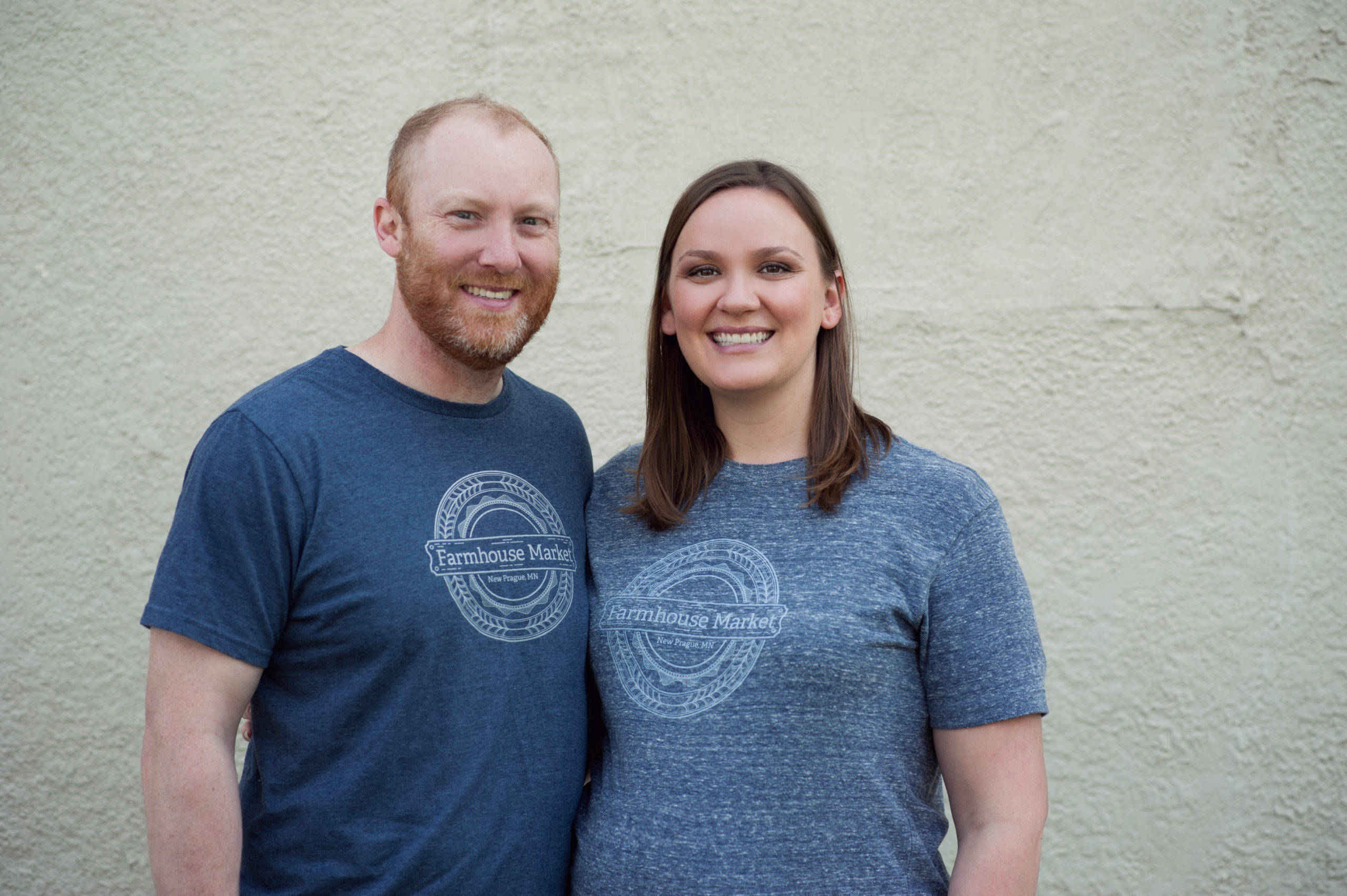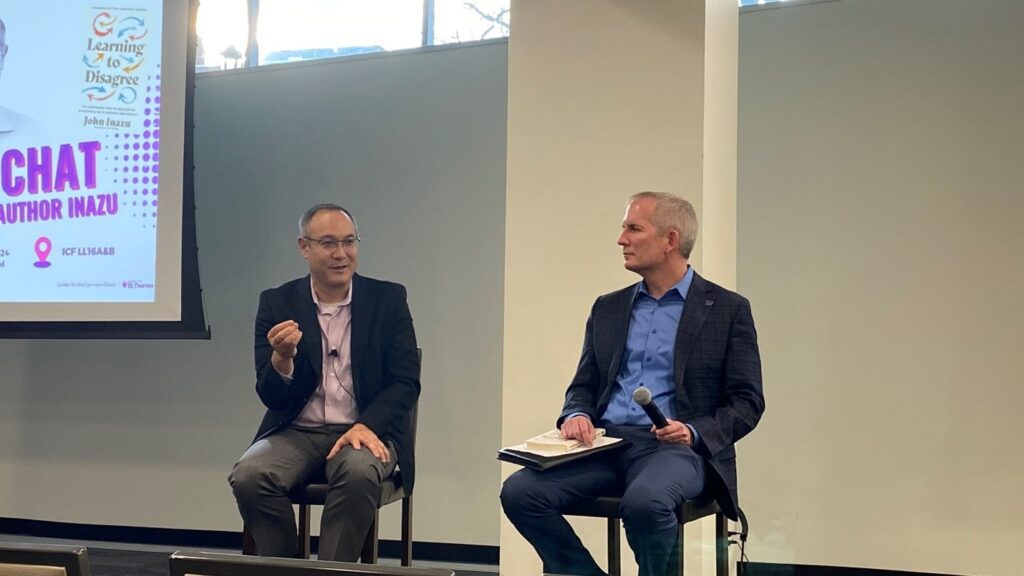When their local, organic creamery, Cedar Summit Farms, closed in early 2015, Kendra Rasmusson ’12 M.B.C. and her husband, Paul, took action. They saw a need for organic food not only in their community of New Prague, Minnesota, but particularly in their own lives – their daughter had recently been diagnosed with epilepsy and, although her medication was providing good seizure control, they wanted to explore other avenues of treatment, including diet. In 2015, they opened Farmhouse Market, an organic market that works directly with local farmers, food producers and natural foods distributors.
A Business Model for the Common Good
Farmhouse Market operates with a business model that is similar to a co-op: It's membership-based and members get a voice in what products are carried. Additionally, members receive a five percent discount on every purchase. But the most unique part of their business is that all 240 members have keys to the building.
Rasmusson said this decision surprised a lot of people. “People said, ‘WHAT? That's crazy!’ but we believe people, in general, are good,” she said. “Our goal was to make local/organic/specialty foods available in the community we loved AND at an affordable price. We knew that convenience was important too but we couldn't make the math work to keep products affordable yet staff the building around the clock. So we skipped the hiring process and made the members like employees.”
Similar to a 24-hour fitness center, each member gets their own key card, allowing them to shop on their own and even manage their own checkout. For non-members, Farmhouse Market is staffed for a limited number of hours each week and open to the general public during this time.
The Startup Process
Creating a business from scratch is never easy and often takes longer than expected. For the Rasmussons, it took about 10 months to get from the idea stage to opening the doors. They started by interviewing the owners of the newly-closed Cedar Summit Farm and then focused on research using an anonymously-distributed digital survey to gather input from the community.

Kendra Rasmusson ’12 M.B.C. and her husband, Paul Rasmusson, stand outside Farmhouse Market, their food co-op located in New Prague, Minnesota.
Rasmusson worked for many months with the county and city, who connected her with business consultants. By entering (and making it to the semi-finals) of the Minnesota Cup Entrepreneurial Contest held by the University of Minnesota Carlson School of Management, she said they were forced to “do the leg work" to build a business plan and present to investors.
By the end of August 2015, they started to market the store and opened pre-sales of memberships. The community responded with 150 members before Farmhouse Market even opened its doors. The grand opening celebration was held on Halloween and they were blown away from the response from both members and nonmembers.
Rasmusson’s advice for anyone who wants to take a big leap is to both conduct research and to ask for help. “Support is so important to success in a new venture,” she said. “There are resources out there when you open up and ask for them. Make sure your family is on board. You'll need their support more than you'll ever realize. Then, after all that, go for it. Believe in what you're doing and it will show.” She also stresses the important of listening to customers and making sure they know they are highly-valued.
Buzzworthy
Media outlets have started writing about Farmhouse Market and the store was recently named one of Minneapolis/St. Paul Business Journal's 2016 Eureka! Innovation Award winners. This month, Kendra and Paul are presenting at the Rural Grocery Summit in Wichita, Kansas, and they recently participated in the Internet of Food Editorial Series put on by Food+Tech Connect.
Although the journey so far has been exciting, like any new endeavor it has required adjustments to a “new normal” while everyone finds their rhythm. “Paul gets some alone time with the kids while I run the shop during open hours,” Rasmusson said. “It’s good for everyone but definitely different than our old normal. And now that we're getting the hang of things, I’m doing more marketing consulting work, which had been on the back burner the last few months.”
And, most important of all, their daughter is doing well. Through medicine and an improved diet, she's now seizure-free and her parents are optimistic that someday she can be weaned off medicine entirely. One step at a time.







